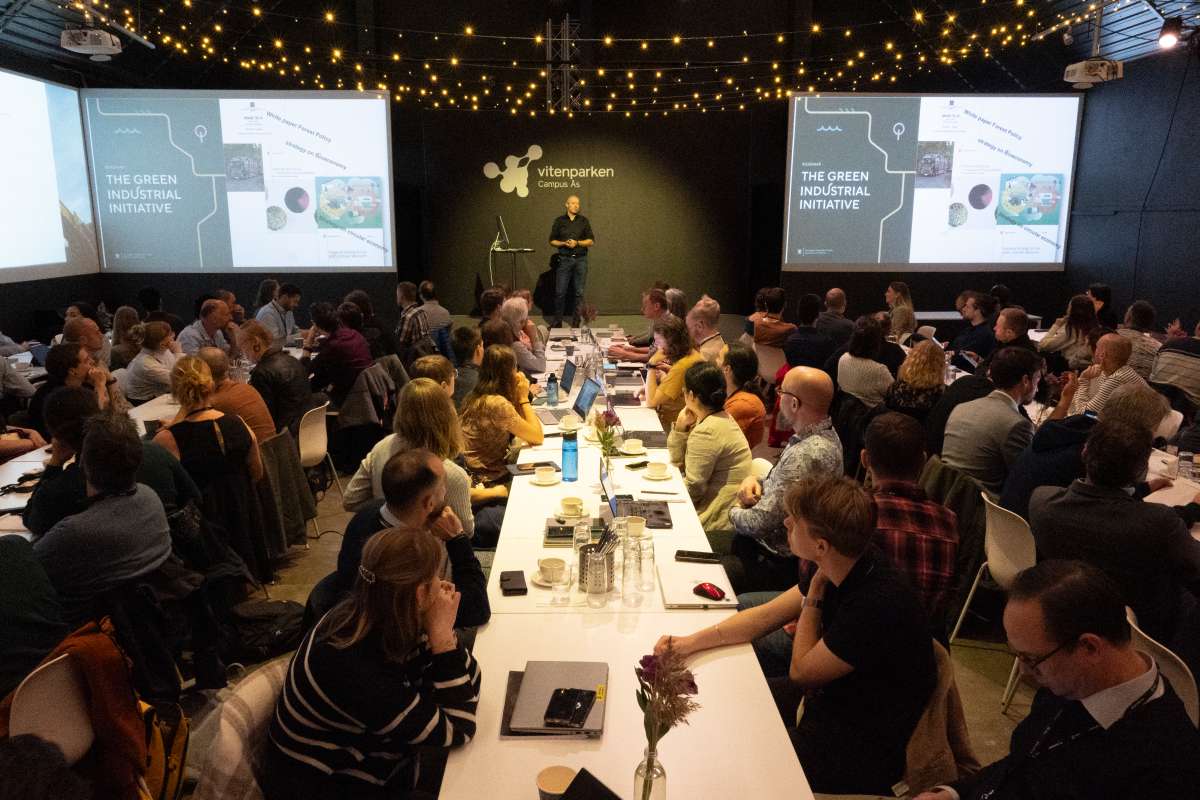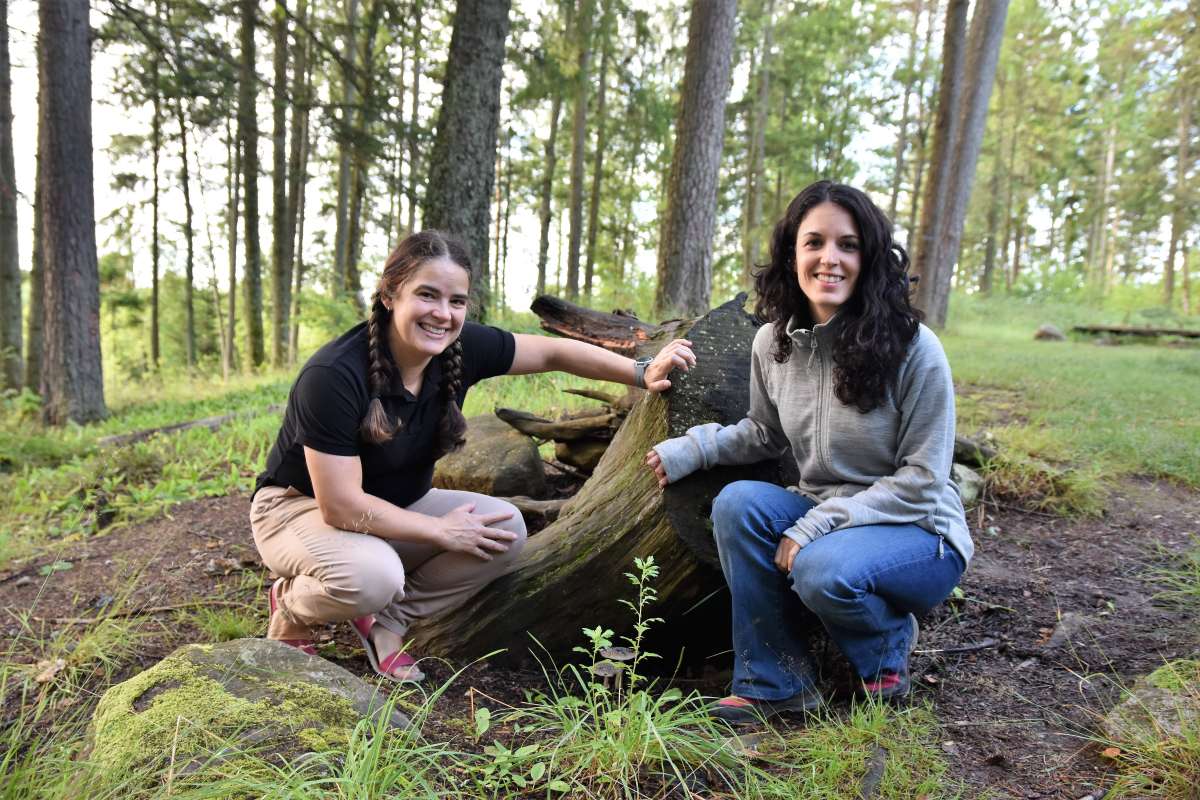NIBIO 's knowledge will be in demand
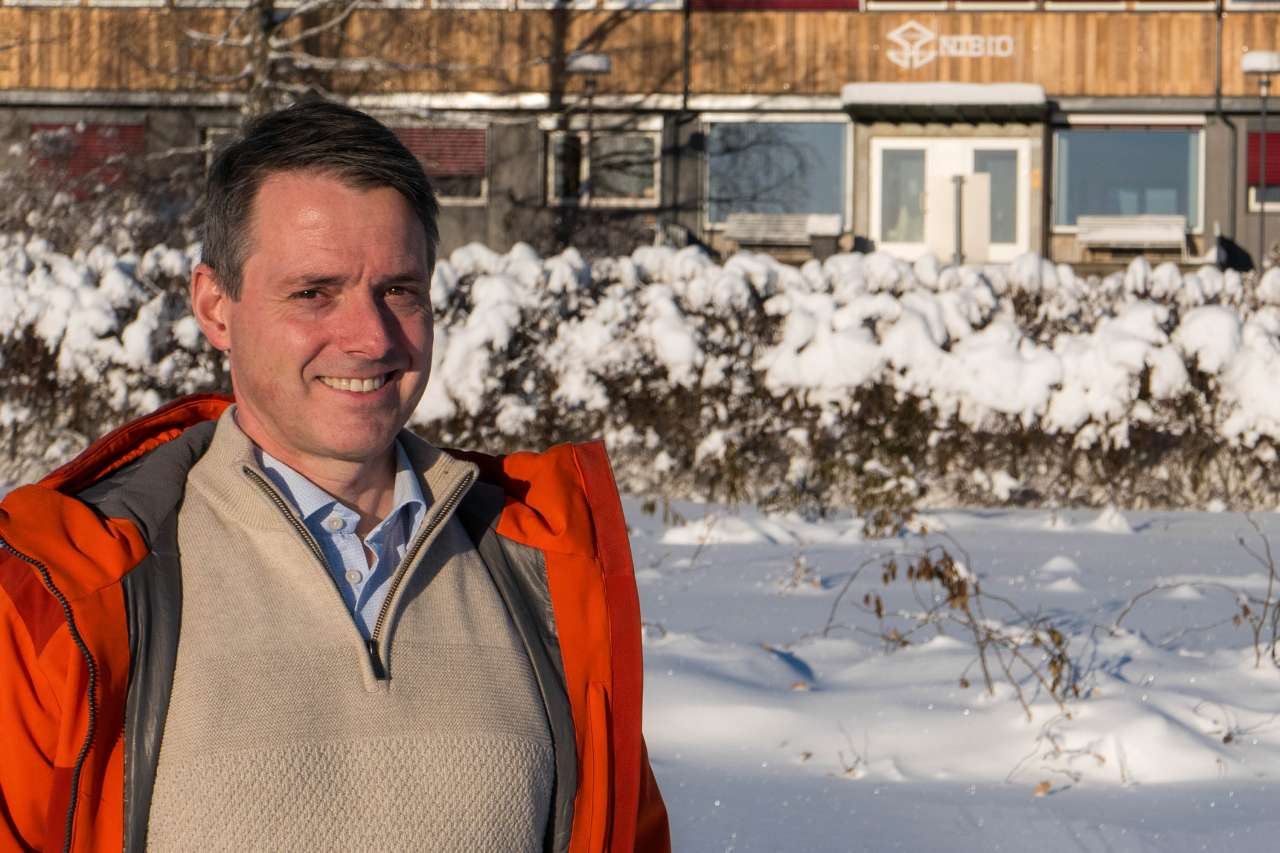
NIBIO CEO Ivar Horneland Kristensen. Photo: Ragnar Våga Pedersen.
As sustainability challenges increasingly take centre stage, there will be a higher demand for NIBIO's expertise from politicians, municipalities, and businesses alike, according to NIBIO's new CEO, Ivar Horneland Kristensen.
Ivar Horneland Kristensen took over as CEO in NIBIO at the turn of the year. He is already fully engaged in familiarising himself with the institute's areas of expertise, and in the coming weeks, he will meet many new colleagues around the country.
There is a particular area that Kristensen is focused on, serving as motivation in his new role: the sustainability challenge facing our society. There are many assessments to be made and challenges to be addressed.
"In my recent roles, there have been some particularly exciting topics—sustainability challenges being one of them. What NIBIO does for authorities, in projects, and for clients is crucial. As society becomes more aware of and concerned about nature degradation, NIBIO has a fantastic position with our areas of expertise, including food, soil, and forestry," says Kristensen.
"I think that NIBIO's expertise will become even more important in the future, and I look forward to work together to fulfil our societal mission and provide knowledge and insights so that Norway can manage the transition," Kristensen adds.
Knowledge about land use
The new CEO comes from Skifte, a business network with 70 companies in Norway. In his previous position, he experienced that many business actors wanted more knowledge about sustainability in various areas.
"Many companies have a good understanding of CO2-reduction. But there are new rules from the EU, and the government has launched the 'Green Book,' which provides new frameworks for how we should handle sustainability. These will affect industry and the public sector in various ways. Measuring emissions is one thing, but other important topics include land use, land conflicts, and the challenges around this," emphasises Kristensen.
"We need knowledge to understand the value of land, how to use the land and the consequences of land use. Human activity requires us to use land, but how do we do it sustainably? All businesses, whether public or private, are implicated in this. We need to comprehend the consequences of what we do, so that it aligns with what the planet can bear and ensures businesses and jobs. Therefore, more knowledge is needed”, says Kristensen.
"Expertise and insights will be in demand from all stakeholders.
When we need to change production or use land more efficiently, for example when we plan for future construction like roads and cabins without harming peat bogs, we must assess these areas with knowledge. NIBIO has relevant expertise. Now it's about keeping up with the rapid developments and ensuring that we disseminate the knowledge," he says.
Kristensen particularly highlights all the data and maps available in the Division of Survey and Statistics. Knowledge about how Norway looks and develops in terms of land use will be crucial.
"For example, Nordre Follo municipality has decided to be area neutral. Literally, this means they must use the existing areas they have for development. They need to know what areas they have and the value of these areas. If they use a new area, they must restore another—meaning nature restoration. How do they have good tools for this? When municipalities go to such lengths, they need NIBIO's knowledge at all levels," says Kristensen.
He wonders how many municipalities currently have full or good insight at the political level into the consequences of land use for various purposes.
"I think there is a knowledge gap there, and they need insight to succeed in sustainability ambitions," he adds.
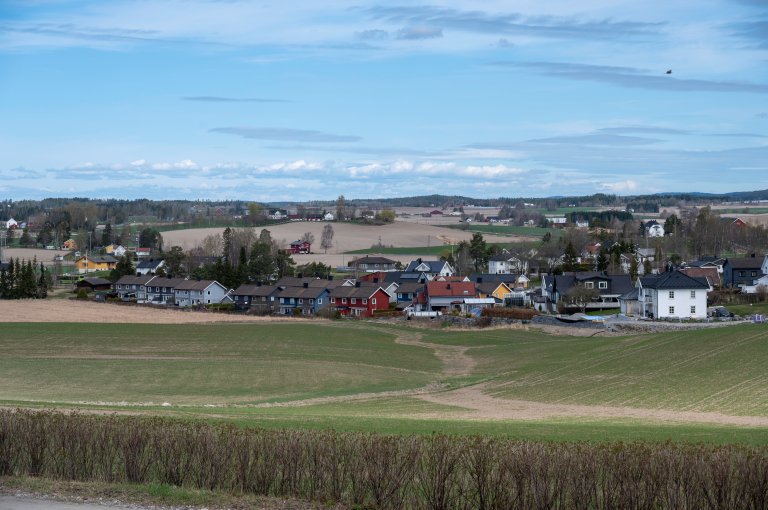
Can shine even further
The CEO says he is naturally curious and finds it very exciting to gain insight and knowledge about NIBIO’s specialised fields.
"I recently attended an internal presentation of 16 future initiatives at NIBIO. The diversity was significant, and it was super exciting. I have already met fantastic, skilled people here who are proud to share what they are working on. Many employees are passionate about what they do, and I look forward to meeting those I have not yet met," says the CEO.
However, he believes that NIBIO has the potential to take an even more prominent place and reach even broader audiences than it does today.
"I feel that NIBIO is a gem that can be further polished so that we shine more than we do today. If I can contribute to that in the stage I am here, I would be very pleased. The world is now feeling the sustainability and climate challenges. This is an opportunity for us. As the seriousness sinks in more places, NIBIO's opportunities increase, and the need for our knowledge," emphasises Kristensen.

More collaboration with business actors
"At NIBIO, we have the state mission, many important projects, and also opportunities for assignments. The Research Council of Norway and the EU are crucial for financing, but perhaps there are additional sources in the contract market. Some business actors in various industries need us. We should ensure to involve them in larger initiatives, believes Kristensen.
Regarding the public debate, he believes that there is a great need for more expertise here as well.
"In some areas such as electrification of the continental shelf, the power crisis, and carbon capture and storage (CCS), the level of knowledge in the political debate is not so bad. If you go into other areas, the need for knowledge is greater. In the sustainability discussion, it will be about much more than power supply. It will be about the complete transformation of business and society. And then, we need a lot of knowledge," he says.
Kristensen thinks many are eager for more knowledge, also to have better discussions.
"We at NIBIO have a responsibility. If you are good in a specialised area, that's great, and we will continue with that. But sometimes it's a challenge to translate knowledge from the research front to societal discussion. Moreover, the translation must go both ways: We must understand the societal debate to position ourselves and deliver. What we produce must also be communicated for everybody to understand. We have a translator role, and this is crucial," Kristensen highlights.
Digitalisation provides opportunities
Another area which the NIBIO director highlights as vital in the future is digitalisation. Kristensen believes that digitalisation with artificial intelligence (AI) can provide entirely new opportunities for research in terms of data usage and management.
"AI is based on data. And with sensor technology, we can extract more data than ever before faster, and continuously. With lots of data, it can also be more challenging to extract something meaningful, but new tools that are emerging now allow us to see structures in data on a much larger scale than before. In NIBIO, we have a lot of data and long data series. Some parts of the research are already advanced in this, but others have not fully embraced it. I think this will be important for research and researchers in the future," predicts Kristensen.
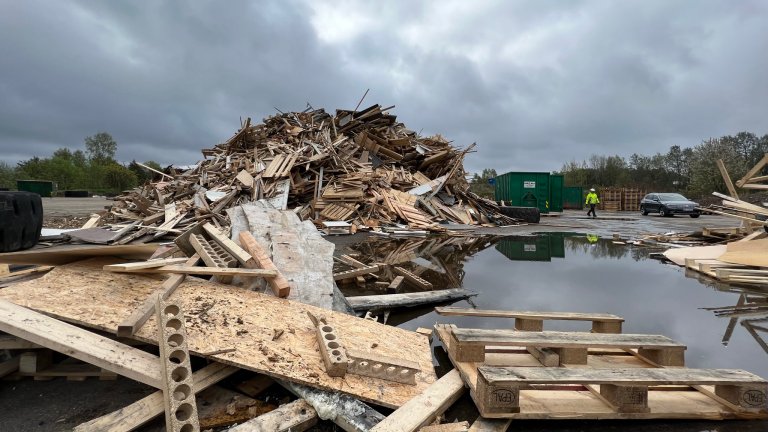
Reuse of resources
Another term that is currently prominent is the circular economy. The CEO points out that there are many new perspectives on circular models.
"But if we look at it very simply, I think we need to change how we deal with resources that we don't find usable. We must stop dumping them in the sea, burning them, or burying them. It is entirely senseless that we do this. In the future, we may face a scarcity of essential things we need. To the extent possible, we should ensure that resources are reused," says Kristensen.
He points out that even though Norway is a world champion in bottle recycling, we are far from being world champions in the circular economy and reuse. He mentions that in a survey a few years ago, Norway scored 2.4%, while the world was at 8.6% (now 9.4%) circularity at that time.
"Now there are many ways to measure this, but regardless, it is true that most of what we use does not return to the cycle. In agriculture, there has always been a mindset that what we pass on to the next generation should be in better condition than when we received it. In other parts of society, we are not there at all. We must return to thinking that resources should go back to the cycle in the best possible way," says the NIBIO CEO.
"However, we must do it in a way that coexists with the planet. The Convention on Biological Diversity states that we should protect 30% of Norwegian land. How should this be implemented so that industries do not collapse? We cannot achieve sustainability transition without involving value creation. We must find a balance between living good lives, ensuring sustainability, but also have jobs. These dilemmas are coming towards us, and NIBIO's knowledge and insights will be significant," concludes Kristensen.
Contacts
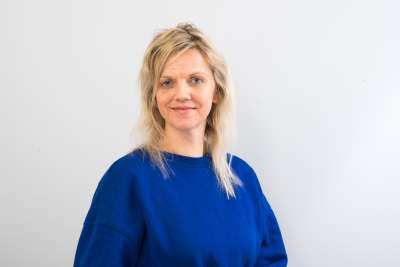
Contacts



